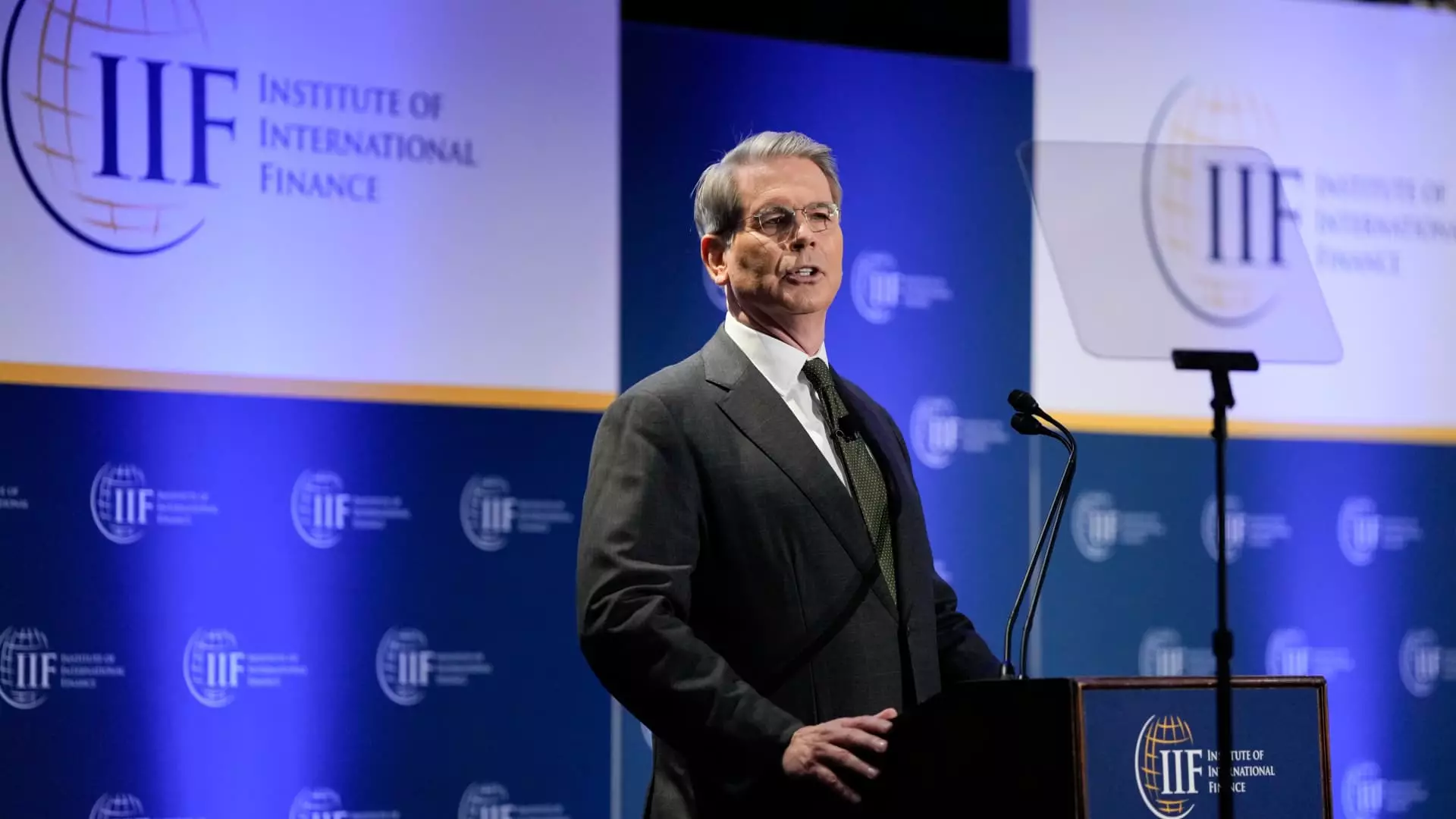In the complex realm of global trade, the United States finds itself at a crossroads, grappling with the escalating tensions between itself and China. Recently, Treasury Secretary Scott Bessent espoused the notion that a significant trade deal is within reach, echoing sentiments of optimism that tend to ring hollow in today’s geopolitical landscape. With a reliance on rhetoric that all too often glosses over substantive issues, Bessent’s assertion raises a question: Are we really standing on the edge of a beautiful rebalancing, or are we merely teetering on the brink of another self-inflicted economic crisis?
The trade imbalances between these two economic giants are glaringly evident, particularly with the staggering tariffs imposed by the Trump administration, reaching an astonishing 145%. Bessent’s remarks suggest a potential reduction to what would still be punitive levels, between 50% and 65%. This tepid proposed rollback does little to alleviate the very real concerns that economists like Ray Dalio have raised regarding the long-term repercussions of such aggressive policies. Tariffs, when viewed through a liberal lens, are a form of economic isolationism that threaten not only the U.S. economy but could also unravel progress globally.
Mission Creep: A Call for Reform
As Bessent pointedly criticized the World Bank and International Monetary Fund for their ineffectiveness, he tapped into a broader concern regarding these institutions’ mission creep. The intended roles of these organizations—to provide financial stability and economic support—appear to have been compromised by the very practices they were designed to combat. This unfortunate reality represents a dangerous drift away from the principles that once defined these institutions, undermining their credibility and effectiveness.
Bessent’s criticism of the World Bank’s ongoing lending to countries like China, which has since successfully emerged as a global economic powerhouse, underlines a fundamental disconnect. Treating China as a ‘developing country’ while it holds such immense economic sway is not merely inadequate; it is ludicrous. By continuing to funnel resources deemed necessary for development into countries that no longer require such assistance, we risk stifling genuine growth opportunities in regions that are still navigating poverty. The focus should be on creating self-sustaining economies, not perpetuating dependencies that have become counterproductive and damaging.
National Security and Economic Resilience
This discussion extends beyond trade imbalances and financial institutions; it taps into a larger narrative that directly concerns national and economic security. Bessent articulated a critical viewpoint: America’s manufacturing sector has seen a worrying erosion largely due to intentional policy choices from other nations. As a center-left liberal, I can certainly endorse the belief that government intervention is necessary to counteract these predatory policies. However, the methods currently employed—namely tariffs—could lead us down a path fraught with peril.
The unilateral action of raising tariffs not only risks retaliatory measures but also signals a disconnection from international cooperation. Many of us believe that collaboration tends to yield better long-term results than aggressive posturing. A constructive approach for the U.S. should be centered around developing partnerships, reforming international institutions, and investing in sustainable industries that prioritize domestic production while fostering global competitiveness.
Rethinking Our Approach
If we consider the implications of Bessent’s suggestions moving forward, there is a clear need for forward-thinking policies that do not simply address immediate concerns but build a framework for lasting reform. Failure to act on the suggestions for timely graduation from the World Bank’s assistance could inhibit growth in countries that desperately need to move towards self-reliance and robust markets.
In reimagining our trade relations and fiscal policies, we must do away with the notion of zero-sum tactics that have so often characterized trade negotiations. Instead, let us embrace strategies steeped in mutual growth and innovate pathways that lead to a more equitable international system. Ultimately, we should strive to create an economic arena that not only enriches America but fosters global prosperity, avoiding the pitfalls of isolationism and leveraging our collective strengths. The beautiful rebalancing that Bessent speaks of remains a tantalizing, albeit elusive, possibility—one we must pursue with both caution and innovation.



Leave a Reply